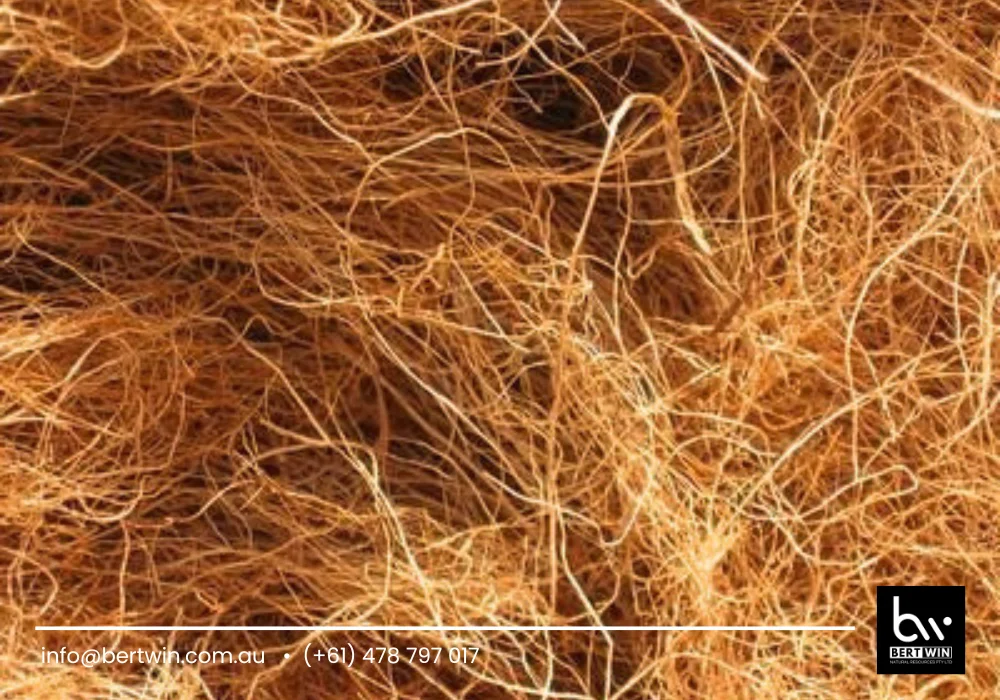The Growing Importance of Eco-Friendly Gardening
Coir garden stake. As the world becomes increasingly aware of environmental sustainability, gardeners and horticulturalists are seeking natural alternatives to synthetic materials. One of the most effective and eco-conscious solutions to emerge is the coir garden stake. Made from natural coconut fibers, this product offers durability, biodegradability, and exceptional plant support, making it a preferred choice among gardeners who care for both their plants and the planet.

The coir garden stake has become popular because it provides an organic way to help plants grow upright while preserving soil health. It replaces conventional plastic or metal stakes that often degrade over time and cause environmental harm. This innovation demonstrates how nature-inspired materials can solve modern agricultural and gardening challenges.
What is a Coir Garden Stake?
The Natural Composition
A coir garden stake is typically made from tightly bound coconut coir fiber that is wrapped around a bamboo or wooden stick. Coir, the fibrous material found between the hard shell and the outer husk of coconuts, is known for its strength and water retention properties. When used as a plant support, it provides a firm yet gentle surface for climbing plants such as money plants, philodendrons, pothos, and monsteras.
The natural fibers of coir retain moisture and allow plant roots to cling easily, promoting vertical growth and preventing damage that might occur with synthetic stakes. These features make coir stakes particularly useful for indoor plants and decorative home gardens.
How It Works
The coir garden stake functions as a climbing pole that mimics a natural tree trunk. When inserted into the soil, it provides stability for plant stems and vines to grow upward. The coir material holds water effectively, allowing aerial roots to absorb moisture directly from the surface. This natural hydration system encourages healthier root development and stronger plant growth.
Moreover, as the plant matures, its roots gradually penetrate the coir, creating a natural support bond that enhances stability and promotes vertical expansion.
Benefits of Using Coir Garden Stakes
1. Eco-Friendly and Sustainable
One of the main reasons the coir garden stake stands out is its sustainability. Coir is a renewable resource derived from coconut husks—an agricultural byproduct that would otherwise go to waste. By repurposing coconut fibers, the production of coir stakes helps reduce waste and supports environmentally responsible practices.
Unlike plastic stakes, coir stakes are biodegradable and do not release harmful microplastics into the soil. This makes them a perfect addition to organic gardening methods.
2. Excellent Moisture Retention
Coir fiber naturally holds water without becoming soggy. This property keeps the plant roots hydrated, reducing the frequency of watering while maintaining ideal growth conditions. For tropical plants and indoor greenery, this feature is especially beneficial.
Gardeners who use coir garden stake products often notice improved plant health, greener leaves, and faster climbing behavior because of the consistent moisture available around the plant’s aerial roots.
3. Promotes Healthy Root Growth
The texture of coir provides a firm grip for plant roots to attach and climb. Unlike metal or synthetic stakes, which can be slippery or abrasive, coir offers a soft, natural surface that encourages root expansion without damage.
Additionally, the aeration property of coir ensures that roots receive enough oxygen. This balance of moisture and airflow prevents root rot and supports optimal plant health.
4. Long-Lasting and Durable
Even though coir garden stake products are made from natural materials, they are surprisingly durable. The combination of tightly packed coir fibers and a solid bamboo or wooden core allows them to withstand varying temperatures and moisture levels.
When properly maintained—by keeping them partially shaded and not constantly waterlogged—these stakes can last for several growing seasons. They remain sturdy enough to support large, mature plants.
5. Aesthetic and Natural Appeal
Beyond functionality, coir stakes bring an appealing natural look to any garden or home. Their earthy tones blend seamlessly with plants and soil, enhancing the overall aesthetic of potted arrangements or outdoor green spaces. This natural appearance is ideal for those seeking an organic and minimalist design for their indoor gardens.
Applications of Coir Garden Stakes
Indoor Gardening
Indoor plant lovers appreciate the coir garden stake for its clean and natural aesthetic. It’s perfect for supporting common houseplants like pothos, monstera, and philodendron, which naturally climb toward light sources. By attaching vines to the coir surface, plants can achieve the same climbing behavior they would in their natural habitat.
Outdoor and Greenhouse Use
In outdoor settings and greenhouses, coir stakes are ideal for supporting vegetables and flowering vines such as beans, peas, and morning glories. Their water-retentive fibers make them suitable for hot and dry climates, helping maintain moisture near the plant base.
Because they are biodegradable, gardeners can compost them at the end of their lifespan, returning valuable organic material to the soil.
Commercial Horticulture and Landscaping
Many professional landscapers and horticultural businesses have adopted the coir garden stake as part of their sustainable gardening toolkit. Large-scale plant nurseries and greenhouses use these stakes to reduce plastic waste while maintaining plant quality and appearance.
In landscaping projects, coir stakes are used to support ornamental plants and climbing vines in eco-friendly designs, contributing to the overall environmental goals of modern green architecture.
The Environmental Impact of Switching to Coir
The move toward using coir-based garden products is a significant step in reducing global plastic waste. Synthetic plant supports contribute to soil pollution and are difficult to recycle. In contrast, the coir garden stake decomposes naturally over time, enriching the soil with organic matter.
Furthermore, the coir industry supports rural economies in countries that produce coconuts, such as Indonesia, India, and Sri Lanka. By purchasing coir stakes, consumers indirectly support small-scale farmers and local artisans involved in coir processing and manufacturing.
Maintenance Tips for Coir Garden Stakes
To maximize the lifespan and efficiency of your coir garden stake, here are a few simple tips:
- Avoid constant saturation – Keep the coir moist but not soaking wet. Excessive water can weaken the fibers prematurely.
- Use proper anchoring – Ensure the stake is firmly inserted into the pot or ground to prevent leaning as the plant grows.
- Replace when necessary – Over time, as the coir decomposes, replace it to maintain support for your plants.
- Combine with organic fertilizers – The natural surface of coir retains nutrients well, so pairing it with organic fertilizers enhances plant growth.
Why Choose Coir Garden Stakes Over Synthetic Ones
The choice between synthetic and natural plant supports may seem minor, but it has long-term environmental implications. Synthetic stakes may last longer, but they are not biodegradable and can contribute to landfill waste. In contrast, a coir garden stake offers both performance and sustainability, aligning with the values of eco-conscious gardeners.
With increased global attention on reducing carbon footprints, products like coir stakes represent a meaningful way to make small, impactful changes in daily habits.
Conclusion: A Step Toward Greener Gardening
In conclusion, the coir garden stake is more than just a plant support—it’s a symbol of sustainable gardening and environmental responsibility. Combining practicality with ecological benefits, it helps plants thrive naturally while reducing plastic pollution.
Gardeners who make the switch to coir products enjoy healthier plants, a cleaner environment, and the satisfaction of supporting renewable industries. As the demand for green products grows, coir stakes are set to become a cornerstone of eco-friendly gardening worldwide.
For further information, you may contact WhatsApp at (+61) 478797017 or via email at info@bertwin.com.au.
